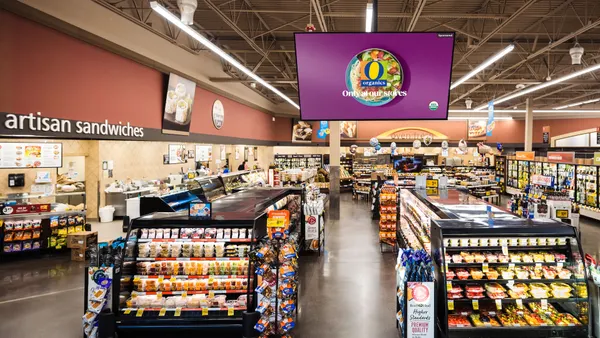Brief:
-
Volkswagen’s Moia division debuted a six-seat electric minibus to enter the market of mobile app-based ride hailing to compete with companies like Uber and Lyft. The carmaker will introduce service in Hamburg in H2 2018 with the eventual goal of a global rollout, Bloomberg News reported.
-
Ole Harms, chief executive of the Moia division, told attendees of the TechCrunch Disrupt conference in Berlin that he expects services using the minibus to replace 1 million cars in Europe and the U.S. by 2025. The service is the carmaker’s way of helping to solve traffic congestion, air pollution, noise and overcrowding, he said in a keynote speech.
-
The service will start out with 200 vehicles and eventually scale up to 1,000 in Hamburg, a major port city in northern Germany with about 1.8 million people. Moia will hire drivers and also sell the service to fleet operators and local governments.
Insight:
Volkswagen’s plan to enter the ride-sharing market marks a major shift for the German automaker that has been slow to consider new trends that are shaping the way consumers decide whether they need to buy a car.
Volkswagen’s planned service is very much geared for the mobile consumer. Moia will let customers order the ride-pooling service through an app, and the vehicles have fast internet access for passengers. In addition, the minibus’s seats include reading lights and USB ports to charge smartphones or tablets. The vehicle has a range of more than 186 miles and can recharge 80% of the battery in about half an hour, Bloomberg reported.
The company was bogged down with a major scandal after scientists discovered some of its cars were made with software that would cheat on air-quality tests and is still trying to rebuild its reputation. While it is late to ride-sharing, the space continues to go through some upheaval as pioneers like Uber and Lyft facing ongoing clashes with local governments compounded by new entries from carmakers and local startups, suggesting there may still be an opportunity to gain market share. Whether the appeal of Volkswagen's electric minibus will be enough to break through remains to be seen.
Volkswagen, which is the world’s biggest carmaker with unit sales of 10.3 million last year, invested $300 million in Uber rival Gett to step into ride hailing in 2016. Meanwhile, Volkswagen’s German rival Daimler started its car-sharing service Car2Go nine years ago, and also added public-transit and cab-hailing apps.
The auto industry worldwide has increased efforts to expand digital offerings as tech giants like Google and Apple seek inroads into transportation solutions that would consign carmakers to become mere suppliers of hardware. In the U.S., families are gradually weaning themselves away from car ownership. The U.S. Census Bureau found that 9.1% of households didn’t have a car in 2015, compared with 8.9% in 2010, a difference that represents about 500,000 households, Quartz reported.









